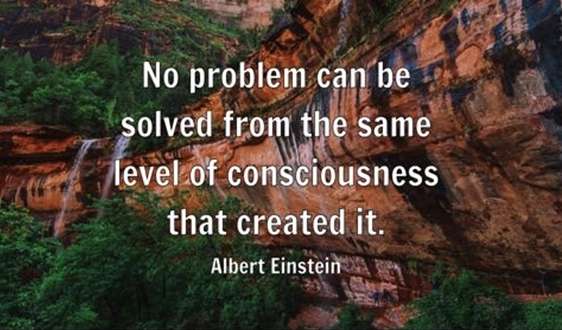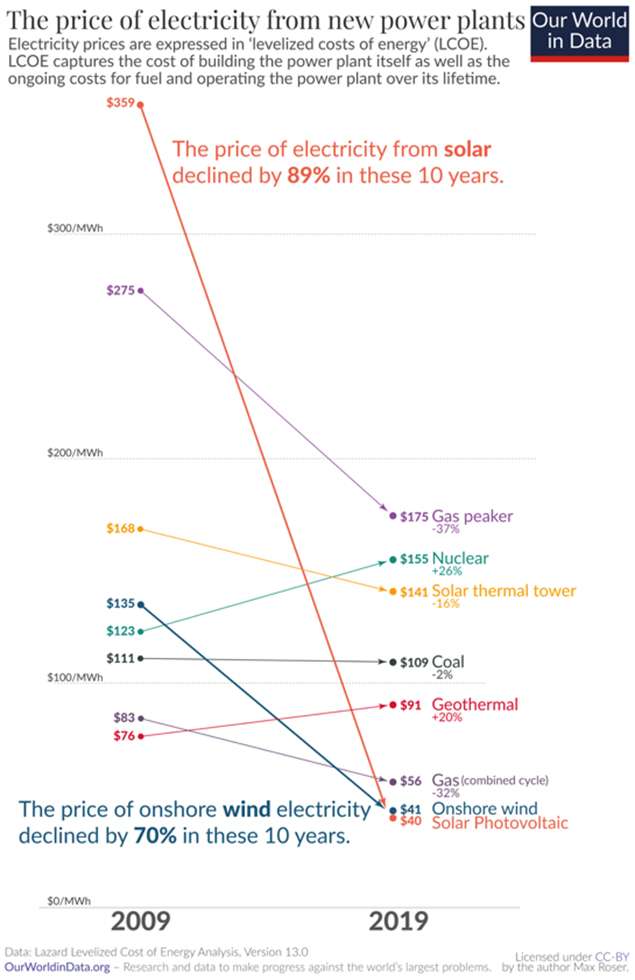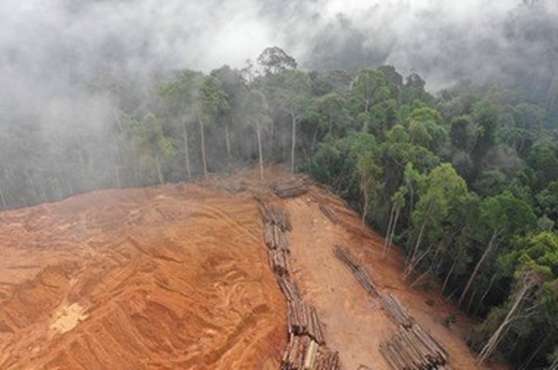
Some Reasons For Optimism In The Battle For The Planet
Let’s start 2023 with some positive news for a change.
It’s amply clear that the current global economic systems are not at all sustainable. Business as usual is not an option. “It’s the economy stupid’ now seems to be the most unfitting of political statements in that the most common notion of “The Economy’ is decoupled from extreme externalities such as environmental degradation, impacts on global health and social upheavals.
A famous Einstein quote is applicable – “No problem can be solved from the same level of consciousness that created it.” To me – this implies that whatever situation we are facing, we need to rise to a new consciousness — a new way of thinking. This means saying NO to business as usual. Fortunately, there is a growing cadre of scientists, economists, political leaders, activists, conservationists, indigenous groups, farmers, foresters, engineers and more that are applying knowledge to attain solutions for the crises we face.
Christiana Figueres is the former executive secretary of the UN Framework Convention on Climate Change (2010-2016). In a 2021 editorial piece she wrote “History will remember this decade as the climate turning point, the moment we finally woke up to the fact that despite (and because of) shocks like Covid-19, decarbonization — the reduction of carbon dioxide emissions — is now inevitable. The only question is how fast we will achieve it.”
Despite the continued force exerted by powerful lobbies funded by big money, there are rays of hope around the world. Note – some of this was mentioned in my previous article – https://www.environmentmatters.ca/climate-change-are-we-beyond-hope/
- Biodiversity – Very recently (December 2022), an historic deal for nature was made at the UN biodiversity conference in Montreal, Canada. It is the most significant effort yet to protect the world’s lands and oceans and provide finance to prevent biodiversity loss in the developing world. The UN biodiversity conference – known as COP15 (COP – Conference of the Parties) – has been considered the “last chance” for nature’s recovery. https://www.euronews.com/green/2022/12/19/nations-agree-landmark-deal-for-biodiversity-at-cop15-what-does-it-mean-for-nature
- Loss and damage – COP27 – the annual conference of the parties on climate change did achieve something. The new loss and damage fund promises to finance the rebuilding of poorer, vulnerable countries hit by increasingly severe climate impacts that they have done little to cause. It is a long overdue acknowledgment of the moral responsibility the big polluters have for the climate emergency.
- Clean energy became cheaper much faster than expected. The cost of both solar energy and batteries fell tenfold in the last 10 years and the cost of wind energy by two-thirds. Solar is the cheapest form of new electricity to build in much of the world today. Moreover – a new Oxford University study provides a convincing argument that ending fossil fuel use by 2050 will save the world at least 12 trillion dollars, thus disproving the fallacy that going green is economically difficult. https://www.euronews.com/green/2022/12/15/how-the-renewable-energy-transition-is-going-to-save-everyone-money-according-to-scientist
- Deforestation – A ground-breaking EU (European Union) deal to ban the import of goods linked to deforestation should set a global benchmark and will hasten the passage of a similar law in the US and hopefully other jurisdictions. This will in effect prohibit the import of commodities such as beef, soya, palm oil, coffee, cocoa, rubber, charcoal and paper, and derived products, unless their origins can be verified as not being associated with deforestation. This is an imperative given the fact that a football pitch-sized tract of forest is lost every second somewhere around the world because of agricultural expansion. https://www.theguardian.com/environment/2023/jan/05/eu-ban-on-deforestation-linked-goods-sets-benchmark-say-us-lawmakers
- Litigation – It is anticipated that “2023 will be a watershed year for environmental damage litigation with hearings and judgments across the world” poised to throw light on the worst perpetrators, give victims a voice and force recalcitrant governments and companies into action. https://www.theguardian.com/environment/2023/jan/04/why-2023-will-be-a-watershed-year-for-climate-litigation.
Helping in these cases is definitive evidence that the fossil fuel industry understood the reality of climate change as early as the 1960s. In a paper commissioned by the American Petroleum Association, the authors wrote ““There seems to be no doubt that the potential damage to our environment could be severe,” https://e360.yale.edu/features/climate-lawsuits-oil-industry-research?utm_source=pocket_saves&utm_source=pocket-newtab
- Politically – In Brazil, the defeat of right-wing president – Jair Bolsonaro means a return to policies to save the Amazon (considered the lungs of the earth), or at least halt the pillage that Bolsonaro enabled. And in the USA – the mid-term elections did not result in a projected ‘red wave’ that would have given the Republican Party the political power to potentially reverse the progress that the current administration has initiated on the climate front. Likewise, Australia elected the Labour Party who, with the support of the Green Party and independents have ushered in bold climate plans and regulations. Strangely – conservative parties around the world seem unwilling to face the urgency of planetary destruction.
- Advocacy– Collective action is a global imperative. There have been many mega projects cancelled or put on hold due to collective action. Indigenous leaders are now realizing some long-overdue credit and recognition. Moreover, financial support for climate activists is growing and is accelerating change. For example, there is a new initiative called HERO, which aims to provide a basic income for 10,000 climate activists in the next five years. HERO is a subscription-based platform where people can support activist groups around the world working on pressing policy issues, and thereby turning the climate crisis into humanity’s most unifying ethical moment. https://herocircle.app
- The EU – seems to be the leading jurisdiction in tackling environmental issues. For example, up to 12,000 substances could ultimately fall within the scope of a new law, which would constitute the world’s “largest ever ban of toxic chemicals”, according to the European Environmental Bureau (EEB). In the US – investors are now pressuring the top firms to halt production of toxic ‘forever chemicals’ due to the potential for lawsuits over toxic compounds linked to cancer and other diseases. https://www.theguardian.com/environment/2022/apr/25/eu-unveils-plan-largest-ever-ban-on-dangerous-chemicals.
- Plastics – The EU has the most wide-ranging single use plastics ban. For example, in France – even fruit and vegetables will be sold without plastic packaging. There will no longer be small toiletries in hotels. In Canada – effective December 20, 2022, the manufacture and import for sale of the following harmful single-use plastics, will be prohibited: checkout bags/cutlery / food service ware made from, or containing, problematic plastics that are hard to recycle/stir sticks/and straws (with some exceptions).
- The ozone layer is healing – As a result of an international accord signed in 1987, the ozone layer — which blocks ultraviolet sunlight from reaching Earth’s surface — continues to slowly thicken. Restoring it is key for human health, food security and the planet. This success demonstrates the importance and possibilities resulting from international cooperation.https://www.theguardian.com/environment/2023/jan/09/ozone-layer-healed-within-decades-un-report

These are but a few examples that demonstrate some degree of progress towards the battle for Planet Earth. Much more is needed if untenable environmental devastation is to be avoided. The solutions require technological advances, new economic models (circular economy), rigorous regulations, international accords, massive capital investments (some of which must come from the big polluters) and for certain – political courage.


